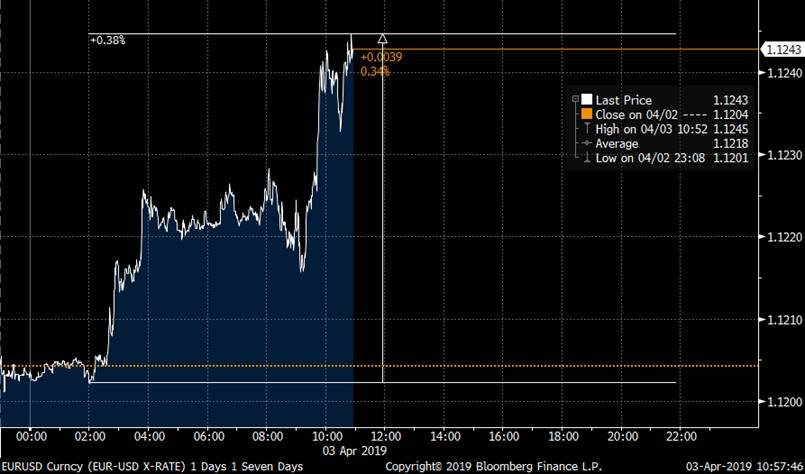Monex: Opvallend goede eurozone diensten PMI positief voor economische groei en euro
Monex: Opvallend goede eurozone diensten PMI positief voor economische groei en euro

Hieronder volgt een commentaar in het Engels van Bart Hordijk, valuta-analist bij Monex Europe, op de vanmorgen uitgekomen eurozone Diensten Inkoopmanager Indices die opvallend goed waren. Het contrast tussen de maakindustrie en de dienstensector in de eurozone neemt verder toe. Aangezien de groeivertraging in de maakindustrie al breed geaccepteerd is, is deze divergentie voor nu positief voor de eurozone economie en de euro. Daarnaast komt de vertraging in de maakindustrie voornamelijk door het wegvallen van de vraag uit het buitenland, waarbij de handelsspanningen die vanuit de VS de wereld over waaien uiteraard een rol spelen. Daar deze externe factoren van voorbijgaande aard kunnen blijken en de aansterkende dienstensector voornamelijk wordt gedreven door een aantrekkende interne vraag – die dus stabieler is – vormt zich heel voorzichtig een klein opwaarts risico voor de groei in de eurozone voor de rest van het jaar.
Domestic demand may come to the rescue of the slowing Eurozone economy, at least according to this morning’s Services Sector Purchasing Manager Indices that is. The Final Services PMI came in at 53.3 this morning, well above the previous flash estimate of 52.7 and with a higher reading for the largest Eurozone countries Spain, Germany, French and especially Italy. Improved domestic demand is quoted as the reason why activity and new work increased at stronger raters in March, which inspires hopes this leg of the economy may compensate for the slowdown in manufacturing.
The recent meek manufacturing sector data is at the moment already being taken for a fact of Eurozone life, however, how much counterweight the services sector can provide remains an open question. Today’s release hints that growth in the Eurozone at least stabilizes at 0.2% for the first quarter. Looking forward, there is some hope that if the slowdown in manufacturing proves transient – for example as the car industry’s struggle with stricter emission schemes and the US-China trade tensions fade into the past. A rebound in manufacturing, while the services sector continues to hum along, should then be sufficient to prop up Eurozone growth to the long term average rate of 0.3-0.4% per quarter for the rest of the year again. This may even create some upside risks to the current 1.1% 2019 growth estimate by the European Central Bank, which can hush further dovish discussions of pushing ECB policy normalization ever further into the future.
As it is hard to run on one leg, the Eurozone needs to have a pick-up in manufacturing economic activity as well before it can start to run again. For now, however, the solid services data implies the economy may at least be hopping forward faster than before.
Chart 1: After the positive Chinese Caixan Manufacturing PMI this morning, EZ PMIs further buoyed the euro.



